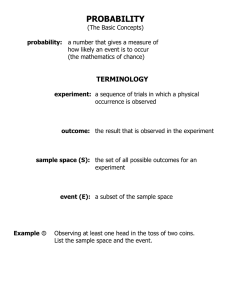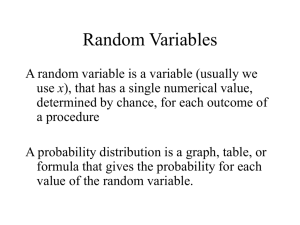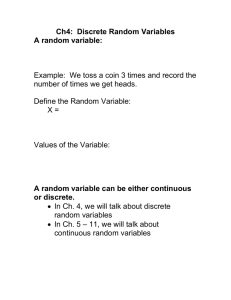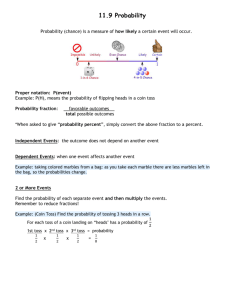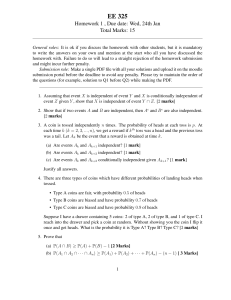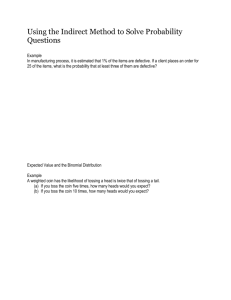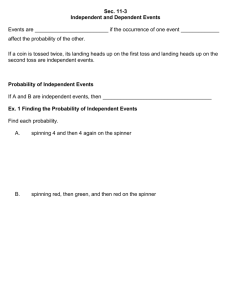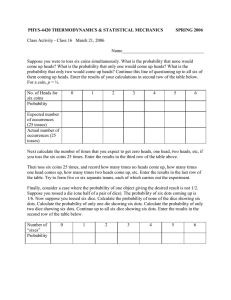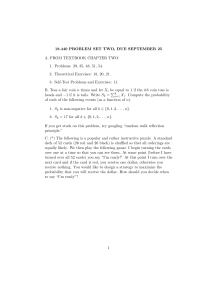Mathematics 103 — Section 202 — Spring 2001
advertisement
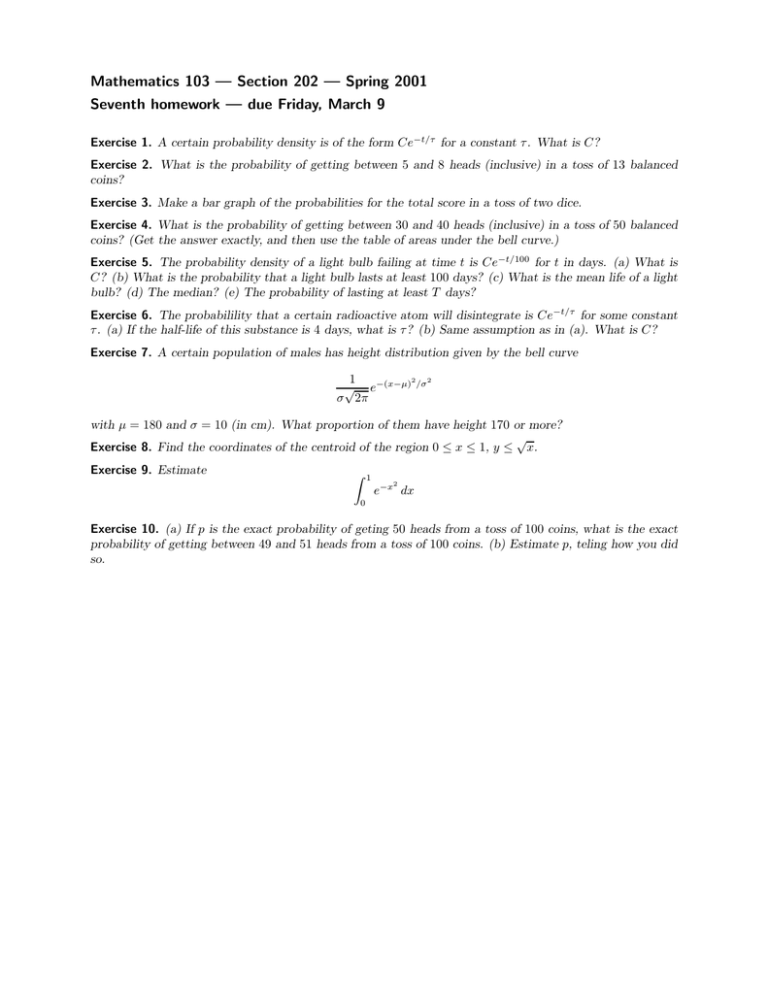
Mathematics 103 — Section 202 — Spring 2001 Seventh homework — due Friday, March 9 Exercise 1. A certain probability density is of the form Ce−t/τ for a constant τ . What is C? Exercise 2. What is the probability of getting between 5 and 8 heads (inclusive) in a toss of 13 balanced coins? Exercise 3. Make a bar graph of the probabilities for the total score in a toss of two dice. Exercise 4. What is the probability of getting between 30 and 40 heads (inclusive) in a toss of 50 balanced coins? (Get the answer exactly, and then use the table of areas under the bell curve.) Exercise 5. The probability density of a light bulb failing at time t is Ce−t/100 for t in days. (a) What is C? (b) What is the probability that a light bulb lasts at least 100 days? (c) What is the mean life of a light bulb? (d) The median? (e) The probability of lasting at least T days? Exercise 6. The probabilility that a certain radioactive atom will disintegrate is Ce−t/τ for some constant τ . (a) If the half-life of this substance is 4 days, what is τ ? (b) Same assumption as in (a). What is C? Exercise 7. A certain population of males has height distribution given by the bell curve 2 2 1 √ e−(x−µ) /σ σ 2π with µ = 180 and σ = 10 (in cm). What proportion of them have height 170 or more? √ Exercise 8. Find the coordinates of the centroid of the region 0 ≤ x ≤ 1, y ≤ x. Exercise 9. Estimate 0 1 2 e−x dx Exercise 10. (a) If p is the exact probability of geting 50 heads from a toss of 100 coins, what is the exact probability of getting between 49 and 51 heads from a toss of 100 coins. (b) Estimate p, teling how you did so.
